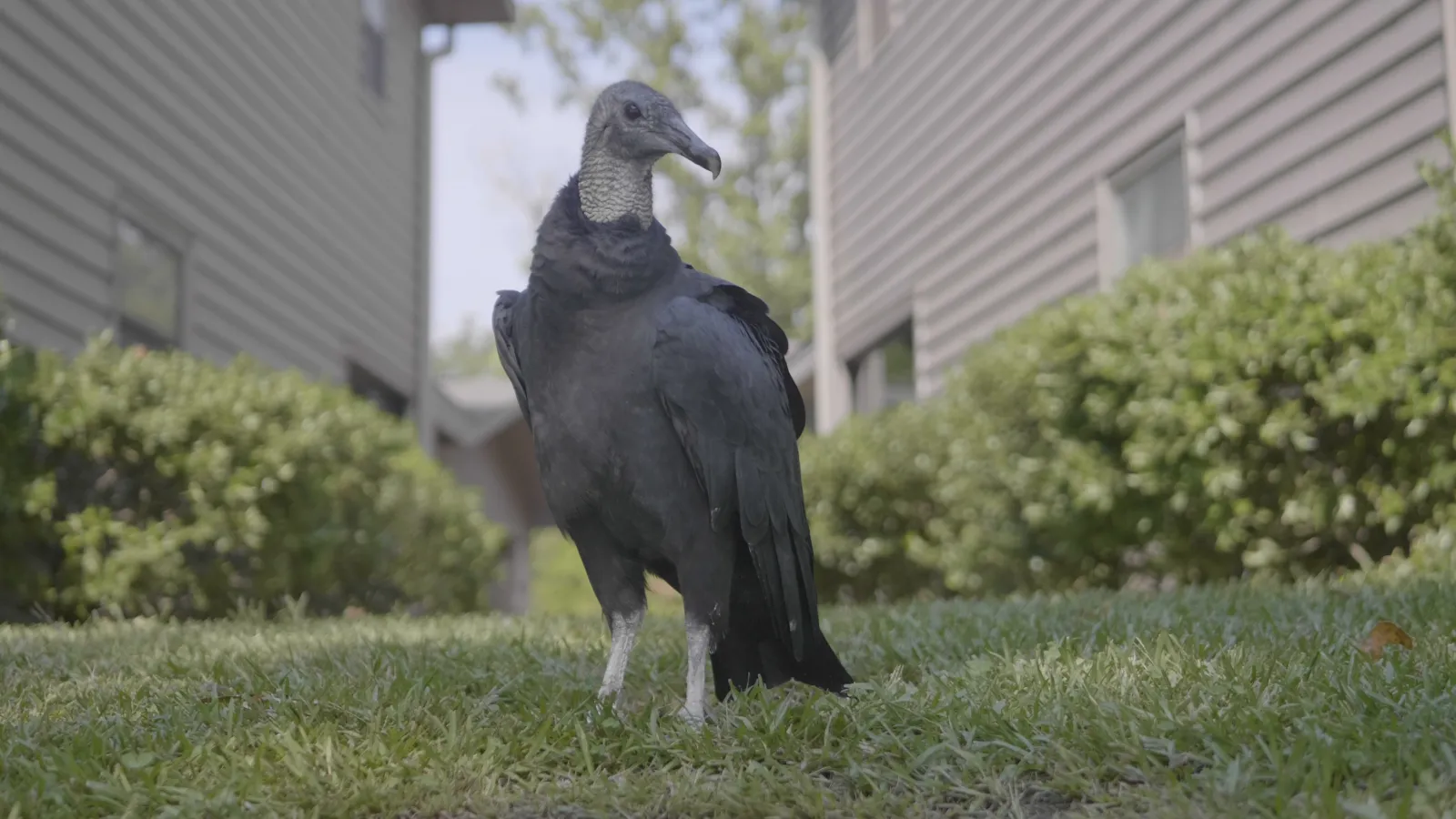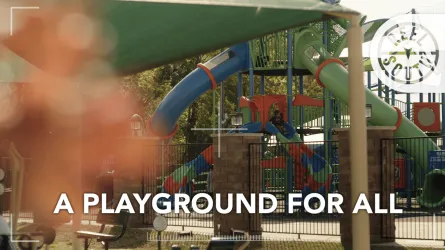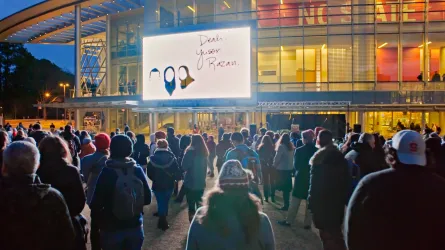In the lead-up to the premiere of the Season 7 finale, Reel South series producer Nicholas Price interviewed Jonathan Sutak, director of the film, Broken Wings. The interview below has been edited for clarity.
Nick: I think in your previous work, you really told a story that was global. How different is it for you to tell a story like Broken Wings that is so incredibly local, even parochial?
Jonathan: Yeah, Dons of Disco was shot in all these different cities and had characters going on tour and feuding over the internet. It jumps around like a Bourne movie, which creates I think a fun momentum, but there isn’t a real sense of place. I was looking forward to trying to achieve that with Broken Wings. It was an adjustment I suppose, but I was also shooting this one so I could lean into that approach from the jump. Dilapidated buildings, steam creeping out of drains, or hovering over the town, a smiley face imprinted onto a grimy window. I shifted focus from story to texture in some moments with the hope that they would start to fuse.
Nick: You do a really great job at giving the audience the opportunity to see Jayne's layers. It would be easy to typecast her but you give her space to fail and challenge assumptions but also meet some of them. How did you strike that balance?
Jonathan: Thanks. It’s tough. Filmmaking can be so reductive. I admire Jayne - but I didn’t set out to craft a hagiographic portrait. She has flaws - but I’m not here to indict her for them. She’s complicated, and yet I was trying to create a relatively simple, self-contained film. At the end of the day, I tried to keep the Adonis storyline as streamlined as possible so that the audience could hopefully forgive me for letting elements of Jayne’s past and personal life weave in and out of the film with multiple threads that don’t necessarily tie into a neat bow.
Nick: There are elements to Jayne's story that felt off limits almost—you get close enough, you find hints, but then reverse. What do you hope Jayne learned in making this film and sharing her story?
Jonathan: As evident in the film, Jayne has a very hard time prioritizing her own interests. And I know from hanging out with her that she is completely unwilling to accept any form of praise. At film festivals, if someone tells her how great she is, she’ll do something like deflect and say I’m a great filmmaker. I hope that after a month or two of this film being out, her self-worth meter will go up a couple notches and she’ll start prioritizing herself more.
Nick: She's incredibly generous. I feel like part of her generosity allowed you/us into her life. What responsibility did you feel to represent Jayne as she wants to be perceived and some of the more hidden truths?
Jonathan: I felt very fortunate that Jayne was so open with me and allowed me to make this film, but honestly part of what drew me to her was the fact that she didn’t “want to be perceived” in any way whatsoever. In fact, I felt like I’d entered into a really compelling situation in which an entire town seemed to know an individual who - apart from talking about Adonis - is actually quite private. As it relates to some of those details, I only included what I felt was relevant to the story, and made sure to talk with Jayne first, seeing whether she was sure she was comfortable with those details being in the film, etc. She was an open book, so the burden was on me and I took that very seriously.
Nick: Have you ever worked with wildlife before? How did you prepare for that? What advice do you have for filmmakers shooting wildlife?
Jonathan: I’d never worked with wildlife, but intuitively I knew I’d need to be able to film from a distance and really milk whatever I got. So I packed very long lenses and shot Adonis in a higher frame rate, so that I could use the material in slow motion, whenever the moment wasn’t tied to a scene. The fact that he couldn’t fly made things a lot easier for me, which was evident every time I aimed my camera at the sky and struggled to keep a flying bird in the frame.
Nick: You are based in Los Angeles and from New York, but what was it like for you to spend so much time in Arkansas?
Jonathan: I loved it. Arkansas is beautiful. But ultimately, a trip is only as good as your guide and Jayne was the best in town. It was fun hanging out with her for those months and I can’t wait to come back.
Nick: Do you have an update to Jayne, Ann, and Adonis since the conclusion of the filming?
Jonathan: To be honest, not much has changed. Adonis is still living in the condos, Ann is still living on Jayne’s couch, and Jayne is still doing her thing. After the premiere, some of Jayne’s friends set up a Patreon to lessen Jayne’s financial toll. If anyone sees the film and wants to support Adonis, now they can!
Nick: What do you hope people learn from Broken Wings?
Jonathan: I think Broken Wings shows that someone you might encounter in your life, who you don’t necessarily give a second thought to at the time, has an incredible story if you’re curious enough to listen. I hope the film encourages some people to spend more time seeking out and engaging with those stories. We’re living through a cultural obsession with pop culture nostalgia, and I think what’s getting overlooked are contemporary depictions of everyday people (and animals, in this case).
Category
Share


